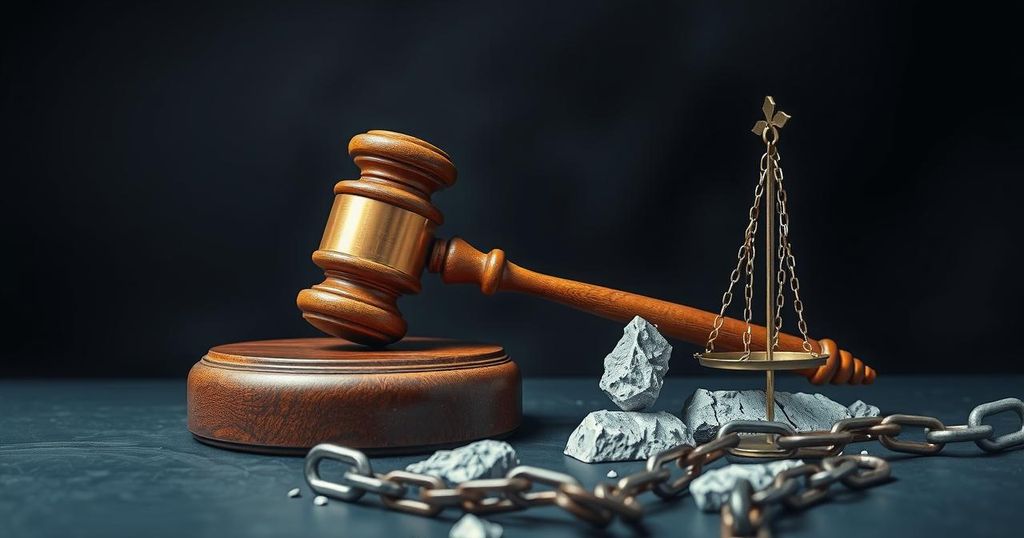The trial of about 40 opposition politicians in Tunisia on charges of “conspiracy against state security” has begun in the face of protests. Proceedings were briefly halted due to disturbances from attendees. Defense lawyers are demanding a public trial, while President Saied blames the defendants for economic issues. The political crisis in Tunisia continues to escalate since Saied’s actions in 2021.
The trial of approximately 40 opposition politicians accused of “conspiracy against state security” commenced in Tunis on Tuesday amid protests from opposition supporters and the relatives of the defendants. Initially held at the Tunis Court of First Instance, the proceedings were interrupted when attendees unfurled slogans opposing the trial and calling for a public hearing, according to reports from Anadolu.
Defense attorneys for the accused insisted that the trial should proceed with public access and the physical attendance of the defendants rather than via remote participation, as was mandated by the judiciary just days prior.
The session began with a roll call, during which Ennahda leader Said Ferjani was seen via video link from prison. President Kais Saied has accused these politicians of orchestrating a conspiracy that has led to commodity shortages and inflation. The opposition contends that Saied is misusing the judiciary to suppress dissent against his exceptional measures imposed since July 25, 2021.
Tunisia is currently experiencing a significant political crisis, exacerbating economic strife that began following President Saied’s removal of the government and dissolution of parliament in 2021. As protests continue, the legitimacy and fairness of the ongoing trial remain under scrutiny.
In conclusion, the trial of opposition figures in Tunisia reflects ongoing tensions in the country as President Saied faces accusations of judicial manipulation. With protests erupting and calls for transparency, the situation illustrates the deep political crisis and its impact on the economy. The outcome of this trial may further influence the political landscape and societal dynamics in Tunisia.
Original Source: www.aa.com.tr






